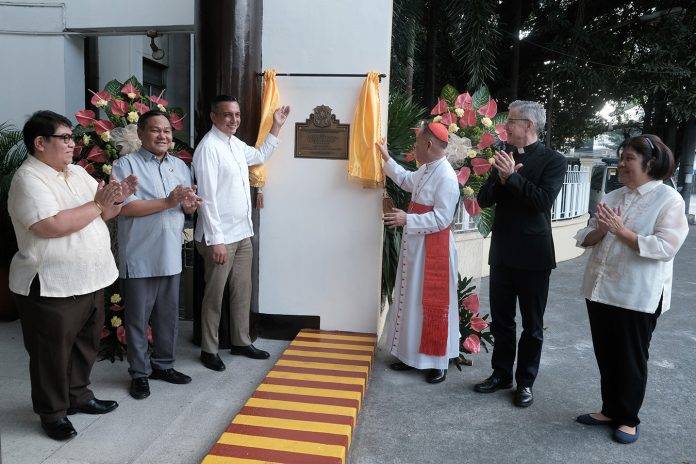Philippines: Pope Pius XII Catholic Center named ‘important cultural property’

The Pope Pius XII Catholic Center in Manila was named an “important cultural property” (ICP) by the National Museum of the Philippines (NMP) on Saturday, said the Catholic Bishops’ Conference of the Philippines (CBCP) News.
The center, which is located along U.N. Avenue, was inaugurated by Cardinal Rufino Santos on Aug. 26, 1964, around 60 years ago.
An ICP is defined as an establishment that holds “exceptional cultural, artistic, and historical significance to the Philippines.”
Cardinal Jose Advincula of Manila, papal nuncio Archbishop Charles Brown, and NMP director general Jeremy Barns were among those who unveiled the ICP marker.
Additionally, more than 80 bishops who had gathered for their 127th plenary assembly were present to witness the event.
“Pope Pius XII Catholic Center is now an important cultural property of our country. Let us help one another preserve and sustain it,” Advincula said.
Over the years, the center has served the historic meetings of the bishops from across the country during their plenary assemblies.
“As Pope Pius XII Catholic Center celebrates its 60th anniversary this year, we would like to pursue its original vision and even intensify its core purpose as an evangelization center,” Advincula said.
The archdiocese intends to fully utilize its facilities and programs in the service of a synodal Church on a mission and for the promotion of the new evangelization, added Advincula.
“We would like to invite everyone to join us in our dream to make Pius XII Catholic Center a home and a hub for synodality and solidarity, for walking together and growing in faith together,’ he said.
According to the law, an important cultural property may receive government funding for its protection, conservation, and restoration. (MTV)
Radio Veritas Asia (RVA), a media platform of the Catholic Church, aims to share Christ. RVA started in 1969 as a continental Catholic radio station to serve Asian countries in their respective local language, thus earning the tag “the Voice of Asian Christianity.” Responding to the emerging context, RVA embraced media platforms to connect with the global Asian audience via its 21 language websites and various social media platforms.











